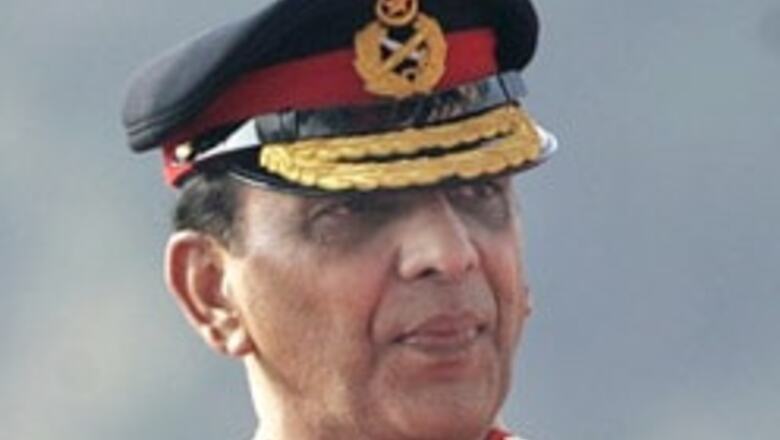
views
Islamabad: Pakistan began moving thousands of troops to the Indian border on Friday, intelligence officials said, sharply raising tensions triggered by the Mumbai terror attacks.
India blames Pakistani-based militants for last month's siege on its financial capital, which killed more than a hundred people and has provoked an increasingly bitter war of words between the neighbours.
The troops headed to the Indian border were being diverted away from tribal areas near Afghanistan, officials said, and the move was expected to frustrate the United States which has been pushing Pakistan to step up its fight against al-Qaeda and Taliban militants near the Afghan border.
Two intelligence officials said the army's 14th Division was being redeployed to the towns of Kasur and Sialkot, close to the Indian border. They said some 20,000 troops were on the move. Earlier Friday, a security official said that all troop leave had been canceled.
The officials spoke on condition of anonymity because of the sensitivity of the situation.
A spokesman for India's Defence Ministry offered no immediate response.
Earlier, Prime Minister Manmohan Singh met Friday with the chiefs of the army, navy and air force to discuss "the prevailing security situation," according to an official statement.
An Associated Press reporter in Dera Ismail Khan, a district that borders Pakistan's militant-infested South Waziristan tribal area, said he saw around 40 trucks loaded with soldiers heading away from the Afghan border.
A senior security official confirmed that soldiers were being moved out of the border area, but said it was "a limited number from areas where they were not engaged in any operation."
He decline further comment and asked his name not be used, citing the sensitivity of the situation.
Analysts said the redeployment was likely meant as a warning to India not to launch missile strikes against militant targets on its territory, a response that some have speculated is possible.
"It is a message to India that if you think you can get away with strikes, you are sadly mistaken," said Talat Masood, a retired general and military analyst based in Islamabad.
PAGE_BREAK
India has demanded Pakistan arrest the perpetrators behind the Mumbai attacks. It says they are members of Lashkar-e-Taiba, a militant group widely believed created by Pakistani intelligence in the 1980s and used to fight Indian-rule in disputed Kashmir region.
Islamabad's civilian government has said it will cooperate in any probe, but has insisted it has seen no evidence backing up India's claims its citizens were involved.
News of the buildup comes as even Indian officials say militant activity in Indian Kashmir has fallen to its lowest levels since an anti-India militant movement began there in 1989.
The number of militant attacks fell 40 percent from 2007-2008, reaching 709 this year from roughly 1,100 last year, Kuldeep Khoda, a senior police official, said in a statement.
The neighbors have said they want to avoid military conflict this time around, but Pakistan has promised to respond aggressively if India uses force, an option the Indian government has not ruled out.
"We will not take any action on our own," Prime Minister Syed Yousuf Raza Gilani told reporters Friday. "There will be no aggression from our side."
Pakistan has deployed more than 100,000 soldiers in Waziristan and other northwestern regions to fight Islamic militants blamed for surging violence against Western troops in Afghanistan as well as suicide attacks in Pakistan.
Security officials have previously said the country would be forced to withdraw troops from the Afghan border if tensions with India — whose army is twice as large — escalated.
"This is a serious blow to the war on terror in the sense that the whole focus is now shifting toward the eastern border," said Masood. "It will give more leeway to the militants and increased space to operate."
The United States wants Pakistan to stay focused on the fight against militants in the border region, where Osama bin Laden and other top al-Qaida leaders are believed to be hiding.
















Comments
0 comment